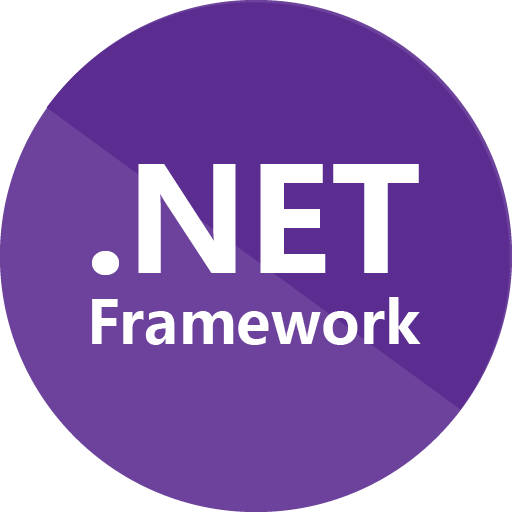As the demands for robust and efficient server applications continue to grow, choosing the right platform for development has become increasingly crucial. In this article, we will compare .NET and .NET Framework, highlighting their differences, benefits, and considerations for choosing the right option. By the end of this guide, you will have a better understanding of which option best suits your server app development needs.
Let’s dive in and explore the world of .NET and .NET Framework for server apps!
What is .NET?

.NET is a free, open-source framework developed by Microsoft that allows developers to create applications for the Windows operating system. .NET can be used to create a wide range of applications, from small console programs to large-scale web applications.
One of the main benefits of using .NET is that it is platform-independent, meaning it can be used to create applications that run on different operating systems, such as Windows, Linux, and macOS. The framework also includes a large set of libraries and tools that can help developers build robust and efficient applications quickly and easily.
What is .NET Framework?

.NET Framework is a software framework developed by Microsoft that is widely used for building and running Windows-based applications. It is an integral part of the .NET platform and provides a runtime environment and a set of libraries and components that developers can use to create applications.
The main goals of .NET Framework are to provide a consistent programming model for building applications, to enable code reuse and compatibility across different versions of Windows, and to provide a secure and reliable runtime environment for executing code. Developers can use .NET Framework to build a wide range of applications, including desktop applications, web applications, and server-side applications. Its extensive library support makes it easy to leverage existing code and functionality, while its performance and security features make it a popular choice for mission-critical applications.
Key Differences Between .NET and .NET Framework
While .NET and .NET Framework share similarities, there are some distinct differences that can affect your decision for server app development.
|
Criteria |
.NET |
.NET Framework |
|---|---|---|
|
Versions |
Newer, cross-platform versions (such as .NET Core) |
Windows-only, older versions |
|
Compatibility |
May require updates to work with some older Windows systems |
Backwards compatible with older Windows systems |
|
Functionality |
Lighter weight and faster, but may require additional libraries for certain features |
Comprehensive libraries and components for a wide range of features |
The choice between .NET and .NET Framework largely depends on your specific project requirements and infrastructure. If you prioritize speed and agility, .NET may be the better choice. If you need a more comprehensive set of features and backward compatibility with older systems, .NET Framework may be the better choice.
Benefits of Using .NET for Server Apps
When it comes to server app development, using .NET can provide a range of benefits for developers and organizations. Here are some of the reasons why:
Performance: .NET is designed to be fast and efficient, making it a suitable choice for high-performance server apps.
Scalability: .NET enables developers to build scalable server apps that can handle large volumes of traffic and users.
Security: .NET includes various security features and built-in protections to help safeguard server apps from potential threats and attacks.
Developer Productivity: .NET provides an extensive set of tools, frameworks, and libraries that can help developers work more efficiently and streamline development processes.
Overall, using .NET can help developers build robust and reliable server apps that meet the needs of their organizations and users.
Advantages of Using .NET Framework for Server Apps
While .NET offers a range of benefits for server app development, there are also several advantages to utilizing .NET Framework. Here are some key benefits to consider:
Extensive Library Support: .NET Framework includes a vast array of pre-built libraries and components, making it easier for developers to build complex server apps without having to write all the code from scratch.
Backwards Compatibility: One of the major advantages of .NET Framework is its ability to run older .NET applications without needing to make any significant changes. This makes it a great choice for enterprises with existing server infrastructures that rely on legacy software.
Mature Ecosystem: Since .NET Framework has been around for over a decade, there is a large community of developers and resources available. This can be particularly helpful for troubleshooting issues, finding libraries, and sharing knowledge with others.
In addition to these benefits, .NET Framework also offers good performance and security capabilities. It is optimized for running on Windows servers and integrates well with other Microsoft technologies, such as Visual Studio and SQL Server.
Considerations for Choosing the Right Option
Choosing between .NET and .NET Framework for server app development can depend on several factors, including your project requirements, existing infrastructure, and future scalability needs. Here are some considerations to keep in mind:
|
Consideration |
.NET |
.NET Framework |
|---|---|---|
|
Compatibility |
Works across multiple platforms, including Windows, Linux, and macOS. |
Primarily designed for Windows-based environments. |
|
Functionality |
Provides a lightweight and modular framework for building web, cloud, and mobile apps. |
Offers a comprehensive library of pre-built components and tools for building desktop and server apps. |
|
Community Support |
Has a large and active open-source community with regular updates and contributions. |
Has a mature ecosystem with established support channels and documentation. |
|
Development Skills |
Requires knowledge of C#, ASP.NET, and modern web development concepts. |
Requires expertise in Windows-based technologies like .NET Framework, Visual Studio, and WinForms. |
Ultimately, the choice between .NET and .NET Framework will depend on your specific needs and goals. If you are building a web or mobile app that needs to run on multiple platforms, .NET may be the best choice. On the other hand, if you are developing a Windows-based desktop app that requires a lot of pre-built components, .NET Framework could be the better option.
Wrapping Up
One thing I would like to add is that the choice between .NET and .NET Framework is not always a binary decision. In some cases, it may be possible to use both platforms together. For example, you could use .NET to build a web app that runs on Linux servers, while using .NET Framework to build a desktop app that runs on Windows machines. Ultimately, the best way to choose the right platform for your project is to carefully consider your specific needs and requirements.